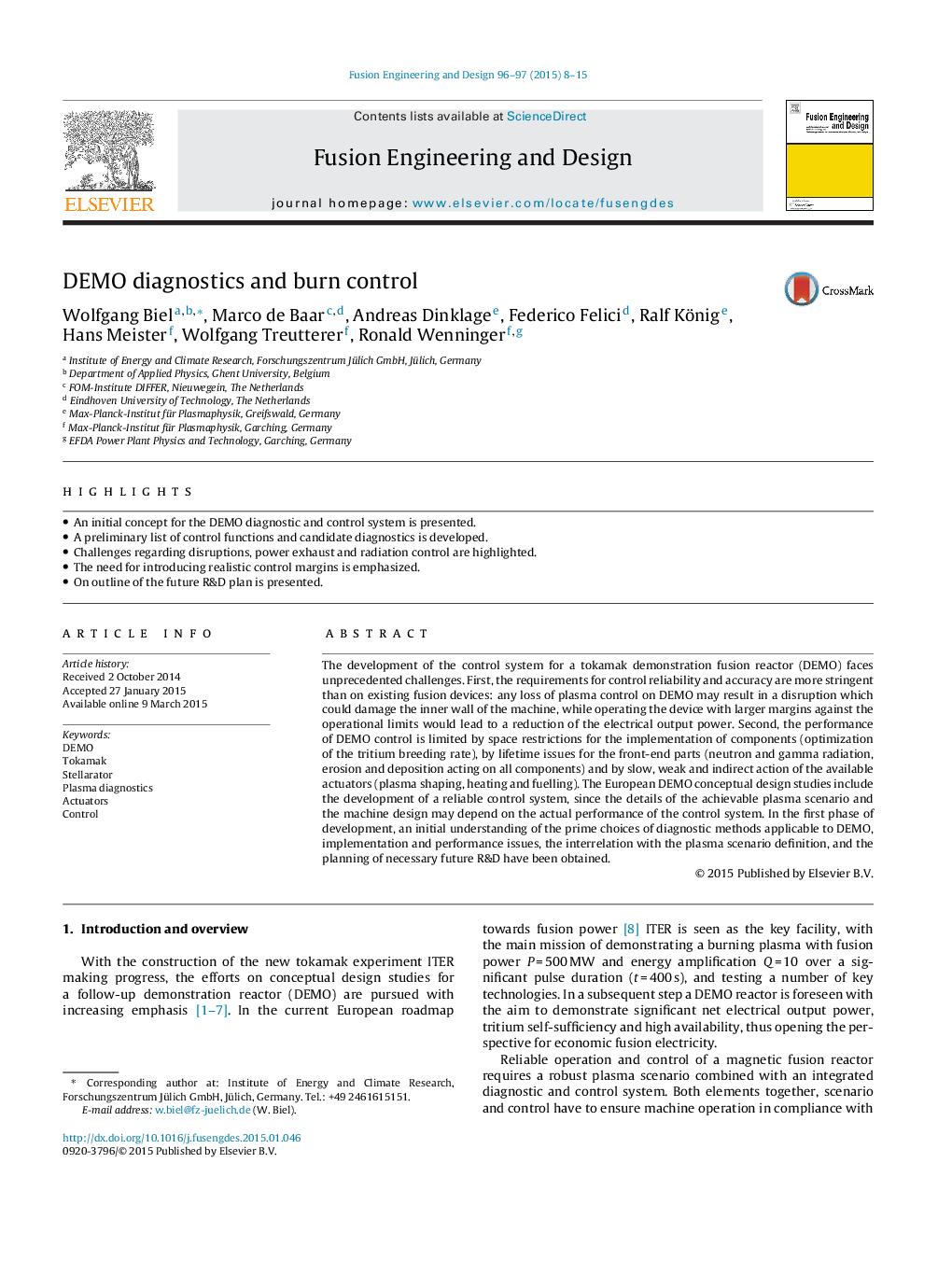| Article ID | Journal | Published Year | Pages | File Type |
|---|---|---|---|---|
| 6745594 | Fusion Engineering and Design | 2015 | 8 Pages |
Abstract
The development of the control system for a tokamak demonstration fusion reactor (DEMO) faces unprecedented challenges. First, the requirements for control reliability and accuracy are more stringent than on existing fusion devices: any loss of plasma control on DEMO may result in a disruption which could damage the inner wall of the machine, while operating the device with larger margins against the operational limits would lead to a reduction of the electrical output power. Second, the performance of DEMO control is limited by space restrictions for the implementation of components (optimization of the tritium breeding rate), by lifetime issues for the front-end parts (neutron and gamma radiation, erosion and deposition acting on all components) and by slow, weak and indirect action of the available actuators (plasma shaping, heating and fuelling). The European DEMO conceptual design studies include the development of a reliable control system, since the details of the achievable plasma scenario and the machine design may depend on the actual performance of the control system. In the first phase of development, an initial understanding of the prime choices of diagnostic methods applicable to DEMO, implementation and performance issues, the interrelation with the plasma scenario definition, and the planning of necessary future R&D have been obtained.
Related Topics
Physical Sciences and Engineering
Energy
Energy Engineering and Power Technology
Authors
Wolfgang Biel, Marco de Baar, Andreas Dinklage, Federico Felici, Ralf König, Hans Meister, Wolfgang Treutterer, Ronald Wenninger,
